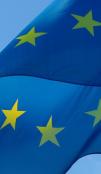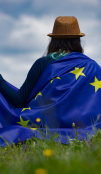Ambassadors and Pupils from Elementary Schools in Podgorica Mark European Day of Languages

The European Day of Languages was celebrated in Podgorica during an event organised by Europe House, the Ministry of European Affairs, the Ministry of Education, Science, and Innovation, and with financial support from the European Union through the EU4ME project.
During the event, informal language workshops and a social gathering of pupils from the "Savo Pejanović" Elementary School with ambassadors from Austria, France, Italy, Hungary, Germany, Romania, Slovakia, Slovenia, and the United Kingdom were organised at Europe House, alongside the chargé d’affaires of the Polish Embassy and a counsellor from the Embassy of the Netherlands.
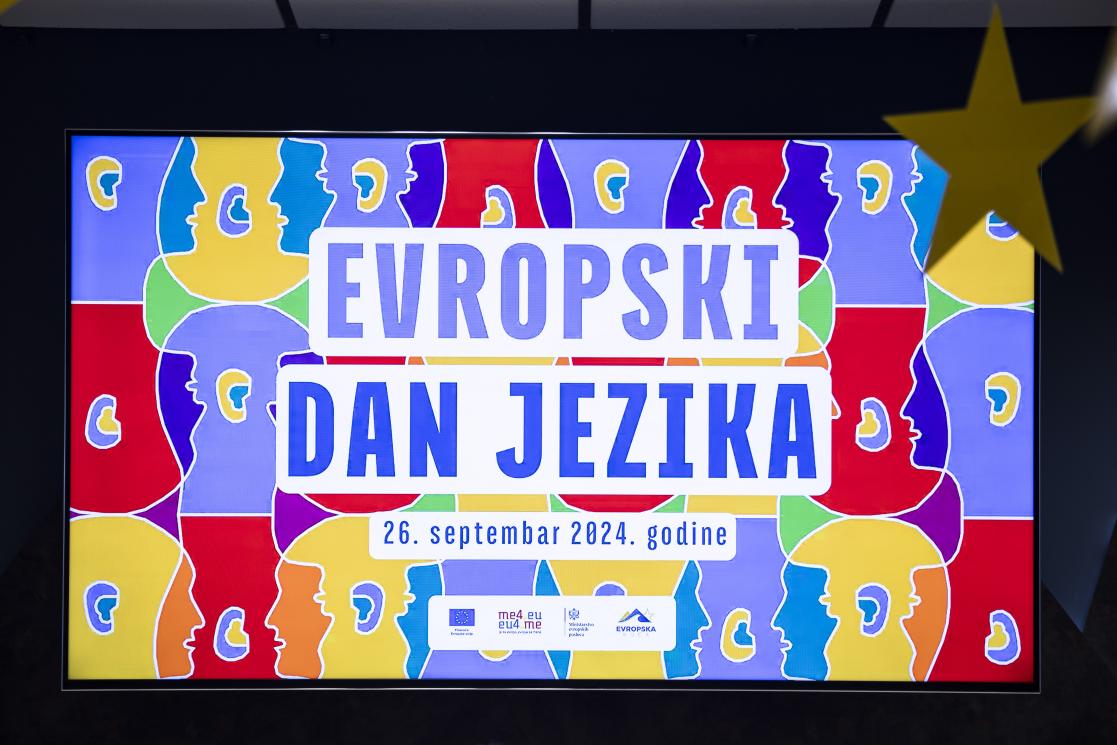
Copyright: Evropska kuća
The Ambassador of the European Union to Montenegro, Johann Sattler, spoke at the opening of the event alongside Minister of European Affairs, Maida Gorčević, and Minister of Education, Science, and Innovation, Anđela Jakšić-Stojanović.
Minister Gorčević stated that the European Day of Languages is celebrated across Europe with the aim of promoting the richness of European languages and cultures. She reminded attendees that there are around 220 native languages in Europe, and that the European Union has 24 official languages.
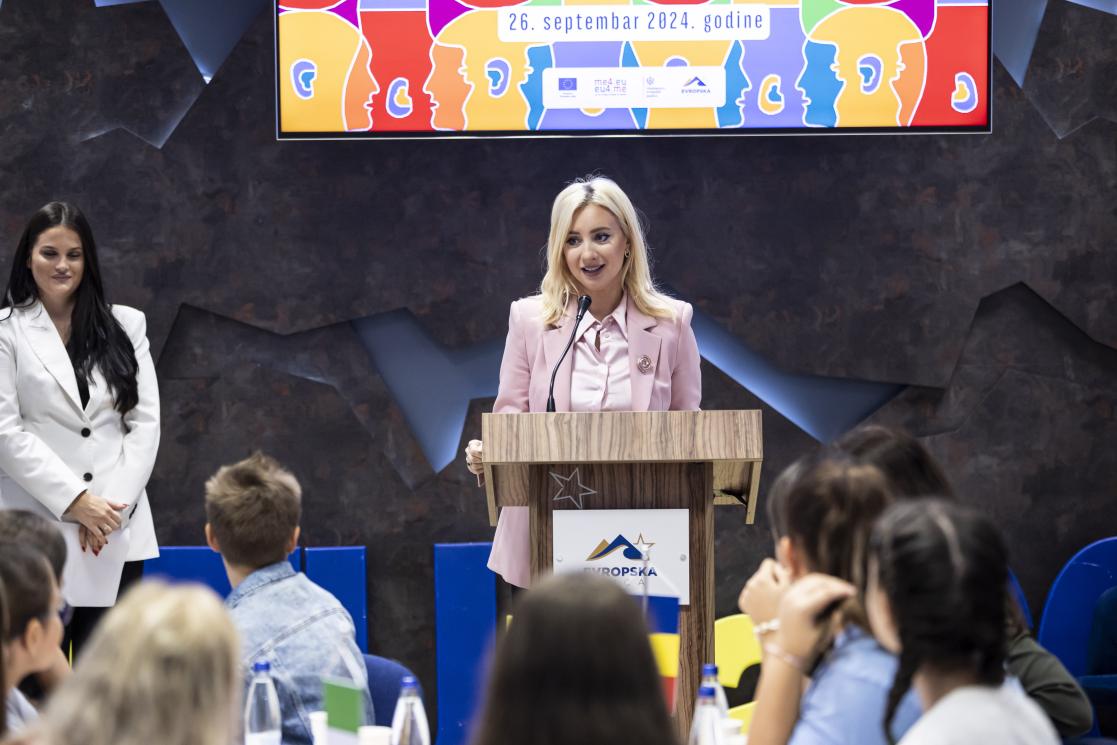
Copyright: Evropska kuća
Minister Gorčević also noted that once Montenegro becomes a member of the EU, the Montenegrin language will become an official EU language, and the children will become full-fledged EU citizens, with all the opportunities for learning, studying, and travelling that are available to others living in the EU.
“I am sure that today, through this workshop with our dear Ambassadors, you will learn new words from them. But I would also suggest that you teach them some of the words from our language. Some interesting ones, perhaps, words we don’t use every day, but which they will certainly take back to their countries to share as something that sounds charming, has a beautiful meaning, or something they will surely take with them from this gathering,” said Gorčević.
Minister Jakšić-Stojanović stated that it is the responsibility of the Ministry of Education, Science, and Innovation to provide young people with access to the richness of languages, not only to equip them with skills for the labour market but to also help them become global citizens, open to new knowledge and perspectives.
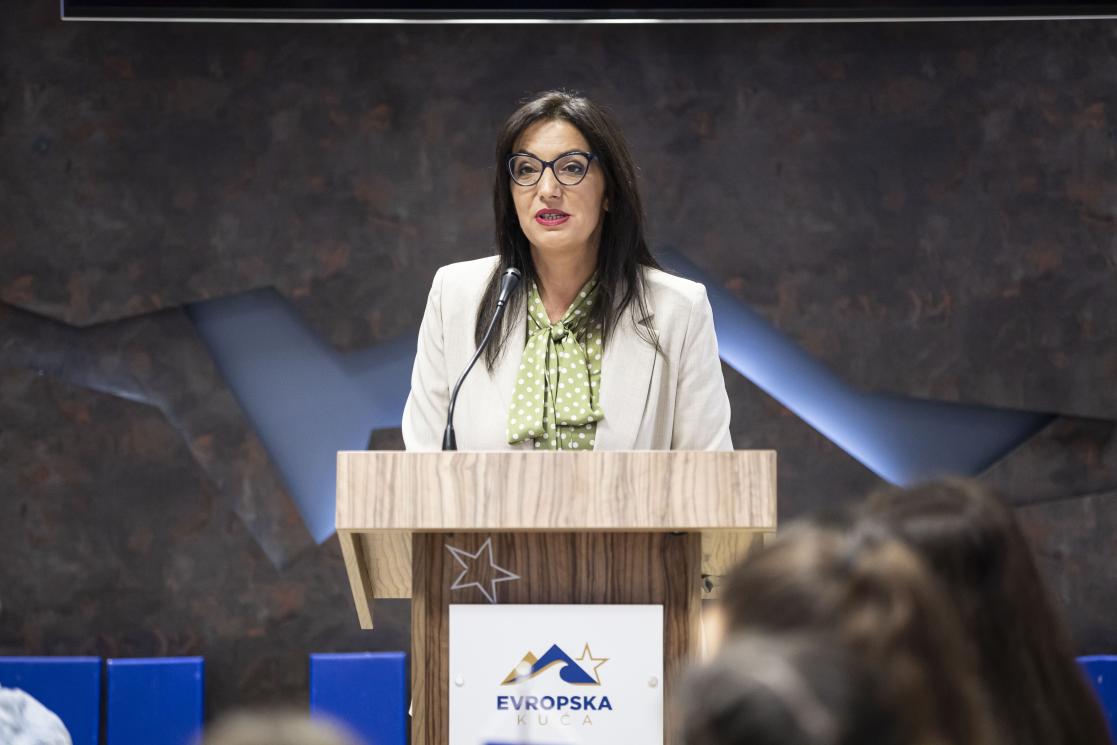
Copyright: Evropska kuća
"Language is not just a means of communication; it is a bridge that connects generations, cultures, and traditions, preserving our past and building the foundations for the future. Through the promotion of multilingualism, we nurture intercultural dialogue, understanding, and respect among the citizens of Europe. In Montenegro, a country with a multi-layered cultural heritage, this value is fundamental to our identity," said Minister Jakšić-Stojanović.
Ambassador Sattler encouraged the children to continue learning, exploring, and enjoying the beauty of the languages around us.
“By celebrating linguistic diversity, we also celebrate cultural diversity. Every language we speak or learn brings us closer to understanding the values, music, food, and stories of other people. It shows us that, while we are all unique, we are also part of a larger, shared European family. That is why the EU strongly advocates for the promotion of multilingualism,” concluded the Ambassador.

Copyright: Evropska kuća
Through the interaction with Ambassadors, pupils from the elementary schools expanded their knowledge of foreign languages and learned new expressions in German, French, Dutch, Italian, Hungarian, Polish, Romanian, Slovak, Slovenian, and English. They also enriched their understanding about the cultures of those countries. Additionally, the Ambassadors learned words and phrases in the Montenegrin language from the pupils.


